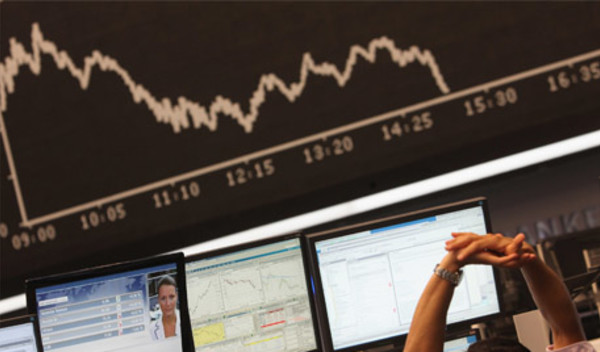

Economic indicators point to a US recession this year, according to M&G's, head of retail fixed income
Before joining M&G in 1997, Jim Leaviss worked as an economist at the Bank of England and said three pieces of economic data from the US all pointed to a recession and had all been reliable indicators of recessions in previous years.
These indicators were home sales, new car sales and the movement of the bond yield curve.
Mr Leaviss said: "Housing is really important to the economy. The 'multiplier' effect of a house being built is significant as it is a labour-intensive industry; also, when you buy a house you also purchase white goods like fridges and freezers, TVs and furniture.
"Whenever you see the supply of unsold homes reach seven months, a recession followed. It certainly did in 2008, despite the consensus of economic forecasters believing that economic growth would be 2.4 per cent – it was actually negative. The supply of unsold new homes is now 7.4 months."
He said new car sales were typically an indicator of consumer confidence, and while there are several reasons why US car sales had declined in the past year, the drop of 10 per cent was extreme and not a positive sign for the economy.
Mr Leaviss noted that the bond yield curve inverted at the start of December, with bonds with a shorter date to maturity having a higher yield than those with a longer date, and that there are "virtually no incidences" where the bond yield curve had inverted and a recession had not followed within a year.
The yield curve inverts because investors sell off the bonds with a short date to maturity, they do this because they expect economic conditions to deteriorate and central banks to cut interest rates.
Bonds with a shorter date to maturity are less attractive as the higher rate of interest they pay expires quickly, while the bonds with a longer date to maturity pay the higher interest rate for a longer period of time.
Mr Leaviss said the cause of the current market turbulence, and of the imminent recession, was the ending of the policy of quantitative easing (QE) by central banks.
This was introduced by central banks during the global financial crisis and involves central banks buying lower risk bonds so the yield on those assets falls and becomes less attractive to investors, who then deploy their capital into riskier parts of the economy, which spurs growth.
Mr Leaviss said: "2018 was the year in which the global QE experiment started to come to an end.
"Buying sovereign bonds brought down yields, creating an effect that led investors to reach into riskier assets for income. In the UK, gilt investors sold their government bonds and bought high quality corporate bonds instead; credit fund managers similarly added high yield bonds to their portfolios, while high yield investors moved down from BB to B rated debt.
"This led to a global inflation in asset prices, with the price of everything, from equities to art and fine wine, going up. The owners of such assets tended to be already wealthy, so inequality in society increased."
The Bank of England has disputed the idea that QE has increased inequality, claiming lower interest rates meant fewer companies went bankrupt in the financial crisis than would otherwise have been the case, meaning unemployment was lower, which benefited those on lower incomes.
Mr Leaviss said the unwinding QE was likely to lead to a reversal of the impact on asset prices, with higher government bond yields meaning investors stick with lower risk assets, selling equities and other bonds.
He said that while the impact of the end of the policy of quantitative easing had so far been felt in financial markets, he expected it would soon spread to the real economy, causing a recession.
His view of the economic outlook is not shared by Gregoire Pesques, head of global credit at Amundi, who said the economic data implied growth was returning to "normal" levels, rather than the elevated levels of early 2018.
John Thomber, investments manager at Andrews Gwynne in Leeds said he expects global growth to be weak due to higher interest rates, but UK smaller company shares and emerging market assets are likely to represent value.
david.thorpe@ft.com



